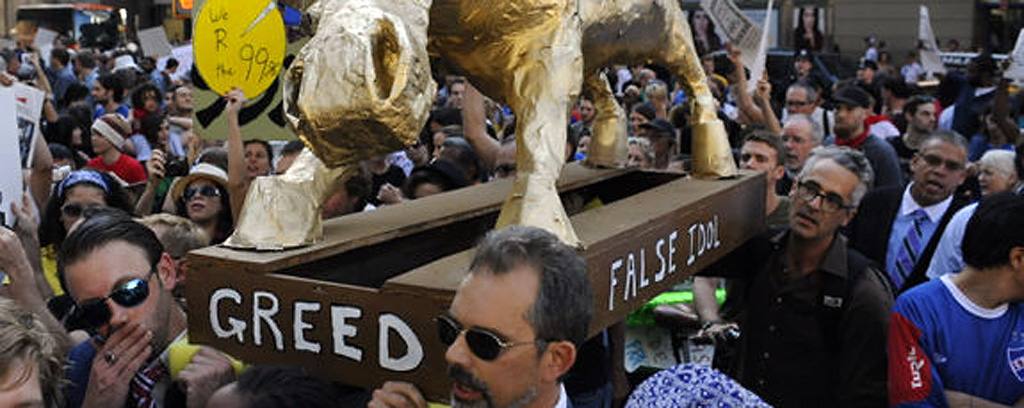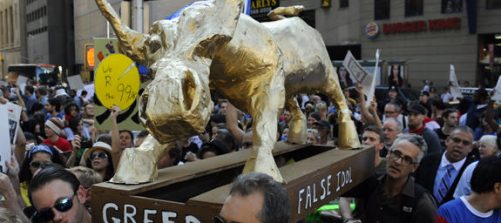Art and its role
What specific role does art play in cultural resistance?
It depends upon how you define art. If you define it very narrowly, as something created by sanctioned artists and primarily experienced in galleries, museums and concert halls, then the answer to the question is: not much. However, if we define the term more broadly to include all creative expression – music, movement, visualization – then art is the foundation of cultural resistance. If art is defined this way then cultural resistance is a form of politics that expresses itself through the arts.
In your experience, are there certain artistic strategies that are more fruitful to express cultural resistance than others?
I think so. Art in its rarified form tends to alienate more than it attracts, which is never good for building a movement. The popular arts, that is, arts that speak in the vernacular of the population: popular music for instance, or even the appropriation of commercial culture like advertising, have a much better chance of reaching a wider public as they speak in a language that people already understand. I’d go even further: it is because they use a familiar form that these sorts of arts are so effective. They offer a comfortable, safe stepping stone to the often more foreign and threatening world of political engagement – a sort of gateway drug.
That said, I think there’s a place for an Avant-garde that produces artistic expression that is largely illegible to much of the population; art that does not speak in a familiar language but suggests a new language, a new way of looking at and understanding reality. (Indeed, this is my favorite kind of political art.) But this sort of politics of art is of limited use in an activist campaign seeking immediate popular support and short-term change.
How do people produce culture actively (by using art)? Can you tell us about some interesting examples you have come across?
There are so many. I’d direct readers to a open-source, user-generated database of creative activism co-created by the CAA and the Yes Labs called Actipedia (actipedia.org). I’d also encourage readers to post their own examples here.
In one of your interviews you state, “we think activism is, or rather it should be, an art: creative and inspirational”. Still, there is some criticism to phasing art and political activism, for example by posing the provoking question why some resistance would strive for “sanctification” through art (see Jürgen Riethmüller, p/art/icipate 2/2013).
Again, it’s all about how you define art. If you think of art as something created by specialists for a specialized audience, then yes: there is no need for activists adopting the mantle of an “artist” producing “art.” As I suggest above, such “sanctification” is actually harmful. But if you think about art as something we all do and enjoy: DJing on a Saturday night or going out dancing, creating scrap books or listening to our favorite bands, or even just going out to a movie or watching TV – if we include these activities in the creation and consumption of “art,” then art actually de-sanctifies. Defined this way, artistic expression is something practiced and embraced by far more people than activism is. As such, activism that is also artistic opens up the practice.
Complementary, there are artists who deliberately stem the equation of art and activism by being either artist or activist – never both at the same time (see Queering Yerevan p/art/icipate 2/2013). Does art have the freedom of not being political? What could be a historical perspective to this question?
Yes and no. I’m enough of a Marxist to believe that all cultural expression is always a reflection of, or reaction against, the dominant social, political and economic conditions. The idea of “autonomous art” is ridiculous. On the other hand, there is art which is consciously political and art that is not. I’m honestly not interested in the latter (except as an individual who likes to go to galleries and museums); I’m interested in working with artists and activists who consciously want to change the world and help them to use their art and creativity to do this.
Florian Bettel, Elke Zobl ( 2013): Artistic activism and cultural resistance: An interview with Stephen Duncombe. In: p/art/icipate – Kultur aktiv gestalten # 02 , https://www.p-art-icipate.net/artistic-activism-and-cultural-resistance-an-interview-with-stephen-duncombe/



 Artikel drucken
Artikel drucken Literaturverzeichnis
Literaturverzeichnis